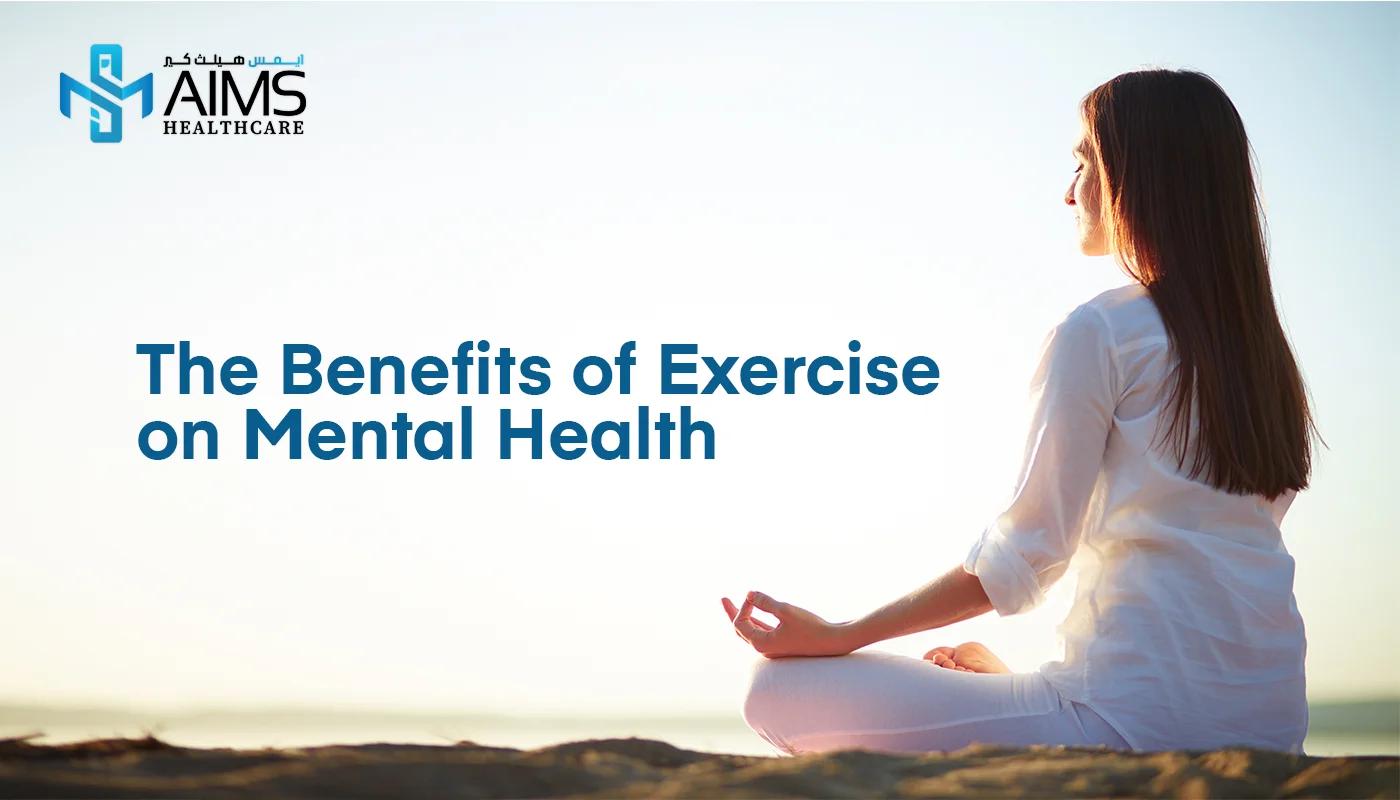
At-Home Fertility Test for Men – A Complete Guide
Table of Contents Having your semen tested at home is the best way to know whether you’re fertile. With at-home testing, you can check how

Do you ever feel stressed, anxious, or depressed? Do you struggle to find motivation, focus, or happiness every day? You are not alone if you answered yes to any of these questions. Millions of people worldwide suffer from mental health issues that affect their well-being and quality of life. But there is a simple and natural way to improve your mental health and mood: exercise.
Exercise is good not only for your body but also for your mind. It can help you cope with stress, anxiety, depression, and other mental health conditions. It can also boost your mood, energy, confidence, and self-esteem.
In this article, you will learn how exercise can benefit your mental health in various ways. You will also get some practical tips on starting and maintaining an exercise routine that will suit your needs and goals.
Exercise releases endorphins, dopamine, serotonin, and other chemicals that make you feel good. These are the same chemicals involved in your brain’s reward system. They can help you feel happy, relaxed, and satisfied. They can also reduce pain and inflammation in your body.
Exercise can also improve your mood by enhancing your self-esteem, confidence, motivation, and focus. When you exercise, you challenge yourself to achieve something. You set goals and work hard to reach them. You see progress and improvement in your skills and abilities. You feel proud of yourself and what you can do. This can boost your self-image and self-worth.
Some tips on how to choose the best type of exercise for your mood are:

Exercise reduces cortisol, the stress hormone, and increases blood flow to the brain. Cortisol triggers the fight-or-flight response in your body when you face a threat or a challenge. It can help you survive in dangerous situations and harm your health if it stays high for too long. It can cause inflammation, insomnia, weight gain, heart disease, and diabetes.
Exercise can help lower cortisol levels by providing a physical outlet for stress and tension. It can also help you relax by increasing oxygen and nutrients in your brain. This can improve your brain function and mental clarity.
Exercise can also help you cope with stress and anxiety by distracting you from negative thoughts, providing a sense of control, and enhancing your resilience. When you exercise, you focus on the present moment and what you are doing. You forget about your worries and problems for a while. You also feel more capable and confident in handling challenges and difficulties. You learn to overcome obstacles and setbacks.
Some tips on how to use exercise as a natural and effective anti-anxiety treatment are:
Some may experience anxiety when considering exercising or starting a new exercise program. This is normal and understandable, as exercise involves physical exertion, unfamiliar situations, social interactions, etc.
However, exercise anxiety should not stop you from enjoying the benefits of exercise for your mental health. Here are some ways to deal with exercise anxiety:
Exercise can help you recover from mental health conditions such as depression, PTSD, or addiction. It can improve your sleep quality, memory, cognitive function, and quality of life.
Exercise can improve your sleep quality by regulating your circadian rhythm (your body’s internal clock) and promoting deep sleep (the most vital stage of sleep). Sleep is essential for your mental health as it helps your brain process information, consolidate memories, repair damage, and restore energy.
Exercise can improve your memory by stimulating the growth of new brain cells (neurogenesis) and connections (synaptogenesis) in the hippocampus (the part of the brain responsible for learning and memory). Exercise can also protect your brain from aging-related decline by increasing blood flow and oxygen delivery.
Exercise can improve your cognitive function by enhancing your attention span (the ability to focus on one thing), working memory (the ability to hold information in mind), executive function (the ability to plan, organize, solve problems), and processing speed (the ability to think quickly).
Exercise can improve your quality of life by increasing your physical health (such as reducing pain and enhancing immunity), mental health (such as reducing symptoms of depression), social health (such as improving relationships and communication), and emotional health (such as increasing happiness and satisfaction).

Some tips on how to start and maintain an exercise routine that suits your needs and goals are:
How to Overcome Common Barriers to Exercise
Some common barriers that may prevent you from exercising regularly are:
Exercise is a natural and effective way to enhance your mental health and well-being. By exercising regularly, you can lower your risk of developing various mental health conditions, such as depression, anxiety, stress, ADHD, PTSD, and more.
You can also improve your mood, energy, confidence, and self-esteem. You don’t need to spend hours in the gym or follow a strict regimen to reap the benefits of exercise. You can simply choose an activity you like and do it at your own pace and convenience. Walking, jogging, biking, dancing, or anything else, you will feel the difference in your mind and body after exercising.
Exercise can help you achieve a balance between your physical and mental health and lead you to a happier and healthier life.
Exercise can help reduce symptoms of depression, anxiety, stress, and other mental health issues by releasing feel-good chemicals in the brain.
There is no single best exercise for mental health, as different types of exercise may suit other people and their preferences.
Aerobic exercise (such as running, cycling, or swimming) and resistance training (such as lifting weights or doing bodyweight exercises) can be effective at treating depression.
Exercise improves mood by stimulating the release of endorphins, serotonin, and other neurotransmitters that regulate emotions and stress responses. Exercise can also increase blood flow and oxygen to the brain, enhancing cognitive function and memory.
Exercise can complement therapy by providing physical and psychological benefits supporting the therapeutic process. However, exercise alone may not be enough to treat some mental health conditions, especially if they are severe or complex. Therefore, it is advisable to consult a mental health professional before starting or changing an exercise program.

Table of Contents Having your semen tested at home is the best way to know whether you’re fertile. With at-home testing, you can check how

Table of Contents Healthy Fasting, Happy Digestion! Explore Tips for a Smooth Ramadan. As the holy month approaches, fasting holds significant spiritual and cultural importance

Table of Contents Healthy Fasting, Happy Digestion! Explore Tips for a Smooth Ramadan. As the holy month approaches, fasting holds significant spiritual and cultural importance